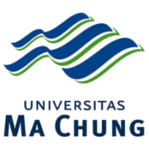Using Authentic Materials and Vocabulary Profiler to Enhance Vocabulary Learning
Abstract
The paper reports a research about the effect of authentic materials and the use of vocabulary profiler on some EFL learners’ master of vocabulary. An intact class of 21 students was taught Vocabulary lesson, which amounted to 100 minutes of class session every week. In addition to this regular intentional learning, they were instructed to read authentic materials and utilize a vocabulary profiler to obtain a vocabulary profile of the materials. They were taught how to interpret the result of the profiling. Next, they were asked to show their texts on a blog so as to allow their classmates to learn new words from the texts. Questionnaires were used to elicit their opinions on this teaching technique.
At the end of the semester a post-test was administered to determine the gains in their vocabulary mastery. While there was an apparent gain in their command of 5000-level English words, they did not make a similarly encouraging achievement in the new words from the texts. An explanation that accounts for the finding was offered. Meanwhile, the answers from the questionnaires seemed to reflect their positive attitude toward the use of authentic materials in this fashion.
References
Binkai, J. (2012). An empirical study on corpus-driven English vocabulary learning in China. English Language Teaching, 5(4), 131 – 137.
Djiwandono, P. I. (2009). Enhancing vocabulary learning through written productive task: a study of pre-intermediate EFL learners at Ma Chung University. Seminar proceeding of Foreign Language Learning and Teaching, Bangkok, Thailand, 24 – 31.
Garrison, D. R. and Vaughan, N. D. (2008). Blended learning in higher education: Framework, principles and guidelines. San Fransisco, CA: John Wiley & Sons.
Kweldju, S. (1997). English department students’ vocabulary size and the development of a model of extensive reading with individualized vocabulary learning. Singapore: SEMAEO Regional Language Centre.
Laufer, B., & Shmueli, K. (1997). Memorizing new words: does teaching have anything to do with it? RELC Journal, 28(1), 89-108.
Nation, P. (2002). Managing vocabulary learning. Singapore: SEAMEO Regional Language Centre.
Nation, P. (2002). Best practice in vocabulary teaching and learning. In Richards, J.C., and Renandya, W. A. (Eds). Cambridge: Cambridge University Press. pp. 267 – 272.
Nurweni, A., and Read, J. 1997. The English vocabulary knowledge of Indonesian university students. English for Specific Purposes, 18(2), 161-75.
Nepomuceno, M. M. (2011). Writing online: using blogs as an alternative writing activity in tertiary ESL classes. TESOL Journal, 5, 92 – 105.
Webb, S.A., & Chang, A. C-S. (2012). Second language vocabulary growth. RELC Journal, 43(1), 113 – 126.
Open Access Policy
This is an open access journal which means that all content is freely available without charge to the users or their institution. Users are allowed to read, download, copy, distribute, print, search, or link to the full texts of the articles, or use them for any other lawful purpose, without asking prior permission from the publisher or the author. This is in accordance with the BOAI definition of open access.
![]() This work is licensed under a Creative Commons Attribution-ShareAlike 4.0 International License.
This work is licensed under a Creative Commons Attribution-ShareAlike 4.0 International License.

















